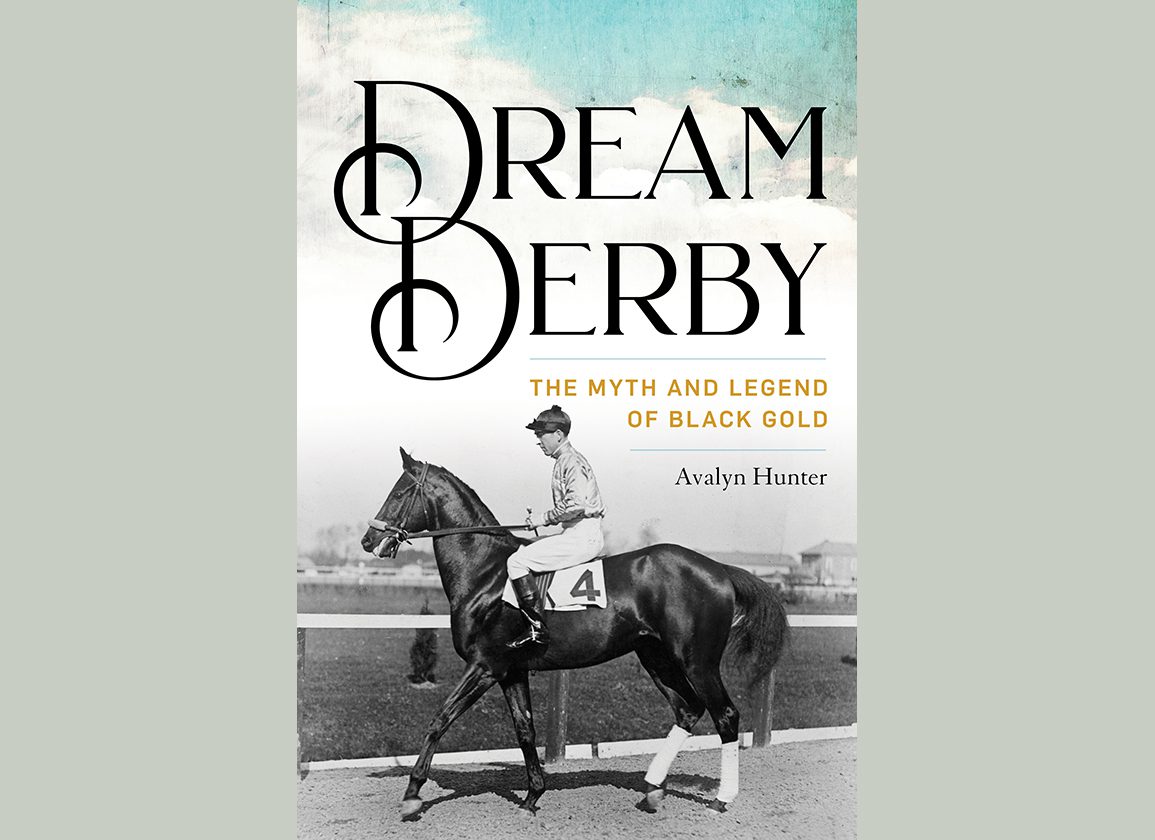By J.N. Campbell
It was an era of controversial stewards' calls, late money affecting the odds before the break, and tracks facing increasing financial pressure from government.
It was a time when criticism of short field sizes was rampant, breeding operations continued to take risks on untested sires, and when sugar horses–those who didn't run often in order to preserve their stamina–were seemingly everywhere.
If that wasn't enough, the age witnessed the rise of the Kentucky Derby as an increasingly highly commercialized party, as debates raged over when Pimlico's Preakness Stakes should run.
The year wasn't 2023; it was hundred years prior in 1923. The more things change, the more…check.
To the historically driven, it's not anachronistic to find significant pieces of the past spurning the trash heap of history. Instead, they are resting comfortably on a tuffet and teed-up nicely for all of us in the present to witness, if we are willing to listen.
That is precisely what author Avalyn Hunter's new book, Dream Derby: The Myth and Legend of Black Gold, just out from the University Press of Kentucky's Horses In History Series, does as it takes in the larger events surrounding a colt named Black Gold, his dam Useeit and their owner Rosa Hoots. This is a monograph with a complex story around their march to what was then the 50th Kentucky Derby in 1924.
Chances are you've read Marguerite Henry's famous children's book, illustrated by Dennis Wesley, about the little black colt that could. First published in 1957, it went through numerous printings, but Hunter is not looking to supplant the plucky images that were created over the generations. For her, the story behind the legend isn't just one dusty fact after another.
Dream Derby is a splendid prism in which to view key American events leading up to and after World War I, as the nation spun into the turn of the Roaring '20s. We learn that horse racing's roads in North America were traveled regularly by dreamers seeking the winner's circle prizes from Mexico to Canada and everywhere in between.
Central to the plot is Black Gold's owner, Rosa Hoots. Raised in the ways of the Osage people in Oklahoma, she was a shrewd businesswoman in Tulsa at the time. Her husband passed away and left her Useeit, along with the prophecy that she would produce a Derby winner. She did send her mare to Kentucky and the resulting colt, named Black Gold, was a reference to the booming oil deposits that many of the Osage discovered after moving to reservation land.

Colby Hernandez lays the ceremonial wreath at Black Gold's grave after his win this year's Black Gold S. at Fair Grounds | Hodges Photography
Not only does Hunter do an excellent job explaining the complexities of racial discrimination associated with the subject of David Grann's 2017 bestseller Killers of the Flower Moon: The Osage Murders and the Birth of the FBI (which is a major motion picture from Martin Scorsese this fall), but she also examines the impact of the Tulsa race riots of 1921. She ably helps us to understand the world that Hoots inhabited and despite advances for women in categories like suffrage, it didn't mean the road was clear. As a horsewoman and not from the Eastern establishment, Black Gold's owner entered a world that is still dominated by men to this day.
The supporting cast is just as intriguing and chock full of characters worth mentioning. We find the hard-drinking trainer, Hanley Webb, who believed that cutting a hole in the stall next to his charge was essential, so he could use it as both an office and a bedroom to sleep as close as possible to his horse. There's 20-something jockey J.D. Mooney, who scratched and clawed his way back into Webb's good graces in order to pilot the best horse he ever rode. Who can forget Colonel Edward Riley Bradley? The founder of Idle Hour Stock Farm, Bradley's timely appearance in New Orleans after a Useeit victory brought the Hoots's mare to breed with his little-known sire Black Toney.
Also figuring prominently is the story of Churchill Downs's tipping point and the role played by Matt Winn. Hunter makes no bones about the integral role played by him. The Derby nearly perished into regional obscurity before his arrival in the early 20th century, and how different would everything be if that major cultural event never happened? Winn's savvy bookkeeping and courting of everyone from the racing press to the Eastern powerhouse breeders kept Churchill from going down–their pun at that time, not mine.
With the path to the 150th Derby upon us, reflection on what this sport meant then and what it means to us today can be grounding. The case of Black Gold and his rise to fame is just as alive today as it was then. In times like these, nothing like a reason to breed, race and dream.
Dream Derby: The Myth and Legend of Black Gold by University Press of Kentucky, 221 pages, September 2023.
Not a subscriber? Click here to sign up for the daily PDF or alerts.






